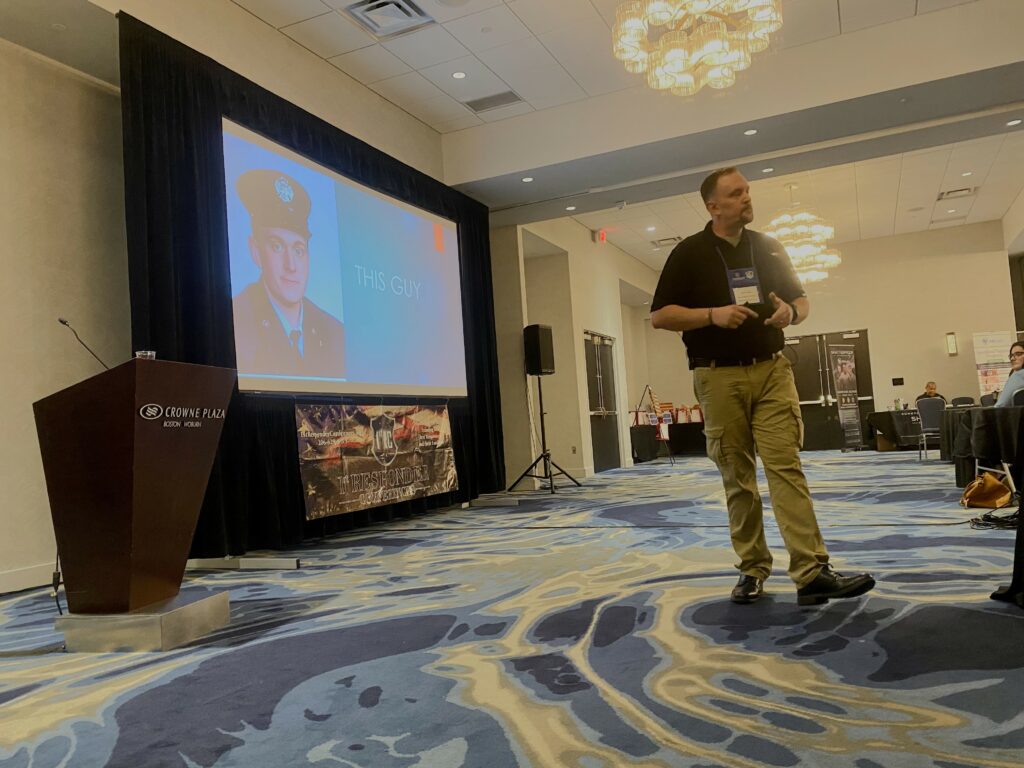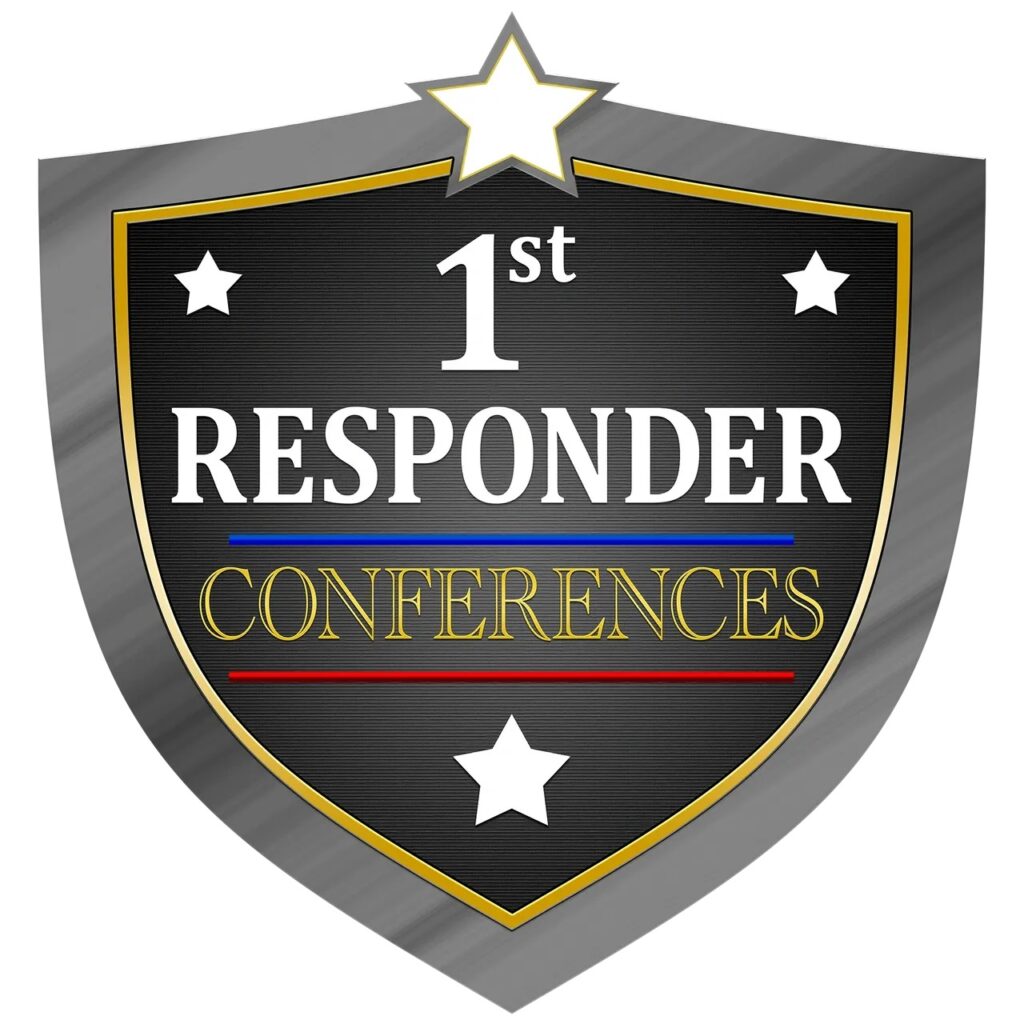This past week, FRC attended the 31st 1st Responder Conferences event in Boston/Woburn, co-hosted by the Middlesex Sheriff’s Office. With about twenty vendors and ten speakers, the conference was a collaboration of resources, a mode of education, and a network of fellowship for all first responders in attendance. In attendance from FRC was Keith Hanks, Mark Swaine, Steph Rubel, and yours truly.
Mental health is at an all-time low in the country and first responders are more likely to die by suicide than in the line of duty. Getting awareness and solutions out there is the top priority of many organizations who attended. We’ll outline some of the speakers and vendors who attended and share the resources as well.
Opening Ceremonies
Sheriff Peter Koutoujian greeted the crowd, outlining the importance of mental health for our first responders. H expressed that – since he began his position ten years ago – he noticed how it’s been forgotten and poorly represented in many areas. He, like many of us, have worked to change that, hoping to expand access to mental health care for first responders. He expressed his gratitude for the event and all who work in areas to correct the lack of mental health support. We hope to continue to have leaders like Sheriff Koutoujian in our corner.
Shawn Thomas, founder of 1st Responder Conferences, spoke next to welcome everyone to the conference. Shawn was a LEOW and an officer (wellness and resilience detective and explosives detective K-9 handler). She understood the need to change from being reactive to proactive and started these events back in 2016. She never knew it would explode like it has and is grateful for its supporters and continued growth.

Keynote
The first day started with the keynote speaker, our very own Keith Hanks. Keith has been speaking nationally for years about his journey with PTSD, the trauma, relapsing, suicide attempts, and more recovery. His story was a great way to set the tone for the work we were there to do. With a room full of first responders, mostly law enforcement but also fire, EMS, corrections, and more, he spoke right to their hearts about things they very well know exist and maybe didn’t talk about much. Keith received the only standing ovation of the two-day event and many came to speak with him after.
Jason Shea
Statewide Health and Wellness Coordinator for the Massachusetts Municipal Police Training Committee, Jason Shea is a strength and conditioning specialist (CSCS) and works closely with law enforcement. Jason discussed the way stress works on the body to create visceral fat. He outlined how certain supplements can counter the effects. He highly emphasized the goal of getting 1% better, smaller goals for quicker achievement and overall success.
Dr. Benjamin Stone
Dr. Benjamin Stone, graduate of US Air Force Institute of Technology, created Sigma Tactical Wellness. They focus on studying cardiac wellness among first responders. Dr. Stone hopes to bring awareness to researchers and insurances about the increased risk and need for proactive monitoring and care for first responders’ cardiac health.
Financial Cop
Retired police officer Nicholas Daugherty is the Financial Cop. He works in money management, specializing in helping first responders focus their financial goals. This helps to prepare for the worst, get out of debt, and create savings to help in times of need. This is especially important because first responders are more likely to need this savings. This is important since one injury can put a first responder out of commission for weeks, months, or even permanently. First responders are more likely to be injured than any other profession.
Mark Junkerman
Army veteran and retired police officer Mark Junkerman works with the International Critical Incident Stress Foundation and for Behind the Line. He outlines the first responder mindset of “mission first, people always.” He expresses that helper’s attitude to always complete one’s duty and be there to serve the people. “Someone has to run into that burning building, or answer that bad call, or respond to that ‘shots fired’…” Mark, like many other speakers, discussed the need for preparation because, in this line of work, critical incidents are an everyday part of the job. Mark was also the emcee of the event.
Tom Greenhalgh
Tom is the Executive Director of the National Public Safety Solutions. He also spoke on behalf of Hayden Duggan, President and co-founder of On-Site Academy, who could not attend. He spoke about line-of-duty (LOD) injuries. With a quick poll, we could see to see how many had a plan for such an event. Not one hand was raised. Tom outlined the common themes around LOD injuries. Shame, no one checks in on you, no attention… Most have no plan to prepare for this. Plus, not working due to injury creates a loss of identity. He then explained On-Site Academy and its mission to “lessen the impact of events, and accelerate recovery.”
Alison Fienning
Alison Fienning is a former K-9 handler with Campbell County Search and Rescue and now provides behavioral health solutions to first responder communities. Alison’s message is, “When your heart is full, people notice.” She got the audience moving and provided a visual with volunteers and balloons. Alison spoke about the different ways people feel “full” and the importance of discovering which type each employee is. This could help managers to know how best to support their team.
First H.E.L.P.
Karen Solomon, LEOW and Co-Founder of First H.E.L.P., spoke about suicide, the rate, the media, the after effects on the family and community, and the steps being made to change all that. She and her group are working hard to create a separate category for first responders. They don’t want suicide to prevent families from receiving life insurance benefits as it now does. They’re also working to change the stigma with departments. This could help change the policy around responders needing help and responding to suicide stories publicly.
Resources
The number of resources for first responders and families is growing. Still, awareness and access to those resources is limited. While the list from the conference is too long for here, we’ll list a few not yet mentioned. Readers can reach out to 1st Responder Conferences or to us at FRC for a more complete list or specific requests. The collaboration between first responder organizations and peer support is growing. Our hope to create a foundation of support, recovery, and better preparation for first responder life.
- 10-42 Project – helping with PTSD and other mental health issues through peer support and resources
- Shatterproof at FHE – Florida-based program helping those with addiction, depression and other mental health concerns
- COPLINE – a 24-hour hotline answered by retired LEOs (1-800-COPLINE)
- Firestrong – a 24-hour hotline for firefighter and family support and support (1-844-525-FIRE)
- Military One Source – supporting military men and women and their families (1-800-342-9647)
- REBOOT Recovery – faith-based recovery healing first responders from trauma from the inside
- Stronger Families – bringing life-changing relationship skills to all first responders
- First Responder Therapy Dogs – providing emotional support through therapy dogs across the country
- First Responder Benefit Association – a line of duty death resource
- All Clear Foundation – peer support for all first responders
- Everyone Goes Home – a firefighter life safety initiative by the National Fallen Firefighters Association
- The Resiliency Project – peer support, advocacy, and funding for treatment, recovery, and services
